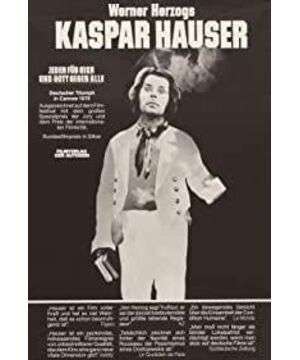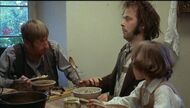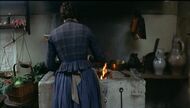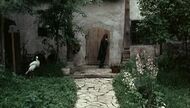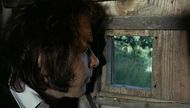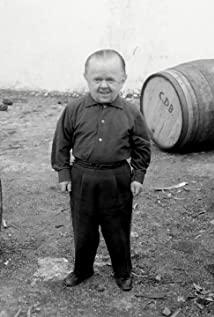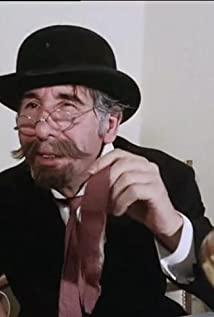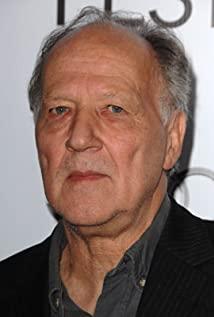No one knows where he came from, this filthy, smelly, ringworm-riddled teenager who can only say one sentence: "I want to be a jockey like Daddy", repeating "horse, horse, horse", he He can't even walk, let alone eat with utensils. He doesn't respond to other people's words, and of course he doesn't know how to express them. He doesn't even respond to sword stabs and flames. He doesn't know what danger is. The burning pain made him cry. The news of this strange person spread all over Europe immediately, and all kinds of scholars, lawyers and civil servants came to visit him one after another. The captain of the cavalry who took him in at first thought he should support himself, so in the circus, Casper stood as before, satisfying people's desire for curiosity. Later, the kind-hearted Professor Domo adopted him and taught him to read, write, weave, and understand all things in the world. Gradually, Casper was able to speak and finally even write an autobiography.
Through his later narration and autobiography, it was known that he came from a cellar, where he woke up every day to find a glass of water and a piece of bread, where he slept and woke up, living like a hog, and he did not know him How long did it go until one day a man came in and taught him to repeat that sentence and taught him to write Kaspar Hauser hand by hand, and when the man carried him out of the cellar and saw the sun and green trees, he even fainted from the fresh air . He was then taken to Nuremberg Platz, where he was found.
Thanks to the rigor of the Germans, the clerks in the city recorded Casper's important words and deeds, which provided the most valuable first-hand information for later researchers. An adult with only the intelligence of a baby suddenly finds himself in a colorful world, learning and communicating, able to eat, to walk, to talk, to think, to dream, and every progress is extraordinary. There is no worldly logic in Casper's mind. For example, he believes that the apple has a mind, because you can't prove it doesn't; he also believes that a tower is smaller than a room, because he is in the room, and there are walls of the room in front and back, and he faces the tower. , it disappeared as soon as he turned; Casper, facing the blind pianist and his melancholy songs, tearful, said word by word: "I think life is too hard for me, I can't be like him Play the piano the same way." In this Herzog's film, some dreamlike scenes are repeatedly emphasized, some Middle Eastern buildings, fog, wheat fields, etc., are about Casper's dreamland. As a human being, we generally don't remember when and what our first dream was, when we knew what a dream was, the dream was already in our sleep, but Casper didn't, the dream, it was in him In the first 16 years of his cellar career, he never appeared. When he gradually became able to think, he gradually understood what a dream was, until he could clearly recount his dream: "Everyone is climbing a rocky mountain, on the slope of the mountain. It's all mountain climbers, and when we get to the top, it's full of dead people."
Casper was later adopted by merchants and nobles respectively, but he was obviously tired of socializing, he scoffed at the idea that God created all things because you can't prove God exists, he hated church Masses because they were "too noisy", these Both make conservative believers very uncomfortable. He was "rude" and "uncultured" to the people who tried to help him, and kept the laity at a distance, saying they were like "wolves". He had just been able to live independently, and five years later, in 1833, at the age of 21 (according to the letter when he was found), Casper was murdered a second time, the first in 1829, with a head injury , but refused to say what the criminal looked like, "I know who he is, I saw him, don't kill me unless you let me know what real life is." The second time he was stabbed in the chest, but he still refused to identify The murderer, as he was dying, told his last "story": the knights followed the caravan across the desert, but they got lost, and there appeared rolling hills to the north, and a blind man grabbed a handful of After tasting the sand, the blind man said, you are all wrong, the mountains you see are actually just illusions, so they continue to go north and finally reach a city, "But, I don't know what happened after that." This parable is the same The story, pretty much the manifesto of Casper, as an intellectually blind man, he identified worldly visions, but how many heard it and could be convinced?
At the end of the movie, the doctors dissected Casper's body and found that his brain and liver were very different from ordinary people. The clerks recorded all this in detail. They were very excited because they found his "abnormal", Thus proving the "normality" of God. The film's subtitle is: "Every Man for Himself and God Against All."
Caspar Jose is a real person in history, and the mystery of his life experience is even rumored to be the German version of the civet cat for the prince. It turned out that some of Caspar's features were associated with the Grand Duke of Baden (Baden is now a county in Germany). Before and after Caspar was born, two of the heirs of the Duke of Baden died at birth. , Duchess Stephanie believes her child has been left out, and if she has no descendants, then the legal heir will be owned by the heirs of another Duchess of Hodgeburg. Duke Leopold, who adopted Kasper, was considered a friend of the heir, and he publicly declared that Kasper was supposed to be a Hungarian, not related to the Grand Duke of Baden. With that said, it's not hard to see why Casper was so disrespectful and declared them "wolves". German Chancellor Anselm van Feuerbach (not the philosopher) believed that Casper was in control, he had evidence that Casper was a descendant of the Grand Duke of Baden, but unfortunately Feuerbach later Died at home, rumor has it that he was poisoned to death. Of course the evidence he said never came up again. That same year, Casper was also assassinated. Since then, the debate has ended, and the mystery is left to later generations to comment.
Casper's encounter can be said to benefit entirely from human civilization, and the legend of his story fully reflects how the wisdom of intrigue was brought into full play, so that the mysteries were full of mysteries. In today's Germany, there is still a lot of data available for research. , they even have a museum that is one of the manifestations of human civilization.
His pathological manifestations can be called "other autism", that is, due to artificial reasons, the communication with the outside world is cut off in the early stage of childhood development. permanent damage that is difficult to make up for later. This pathological manifestation has been named a phenomenon in medicine. Of course, there are no specimens available for research, and it is the second manifestation of human civilization.
From birth to death, Casper lived for 21 years, but his birthplace should be in Nuremberg Square, that is, when he died, he was only 5 years old, he had better children than 5 years old Intelligence and more knowledge, he even has a son, but his "unworldly" is no more than a 5-year-old child, and is the third manifestation of human civilization.
View more about The Enigma of Kaspar Hauser reviews


